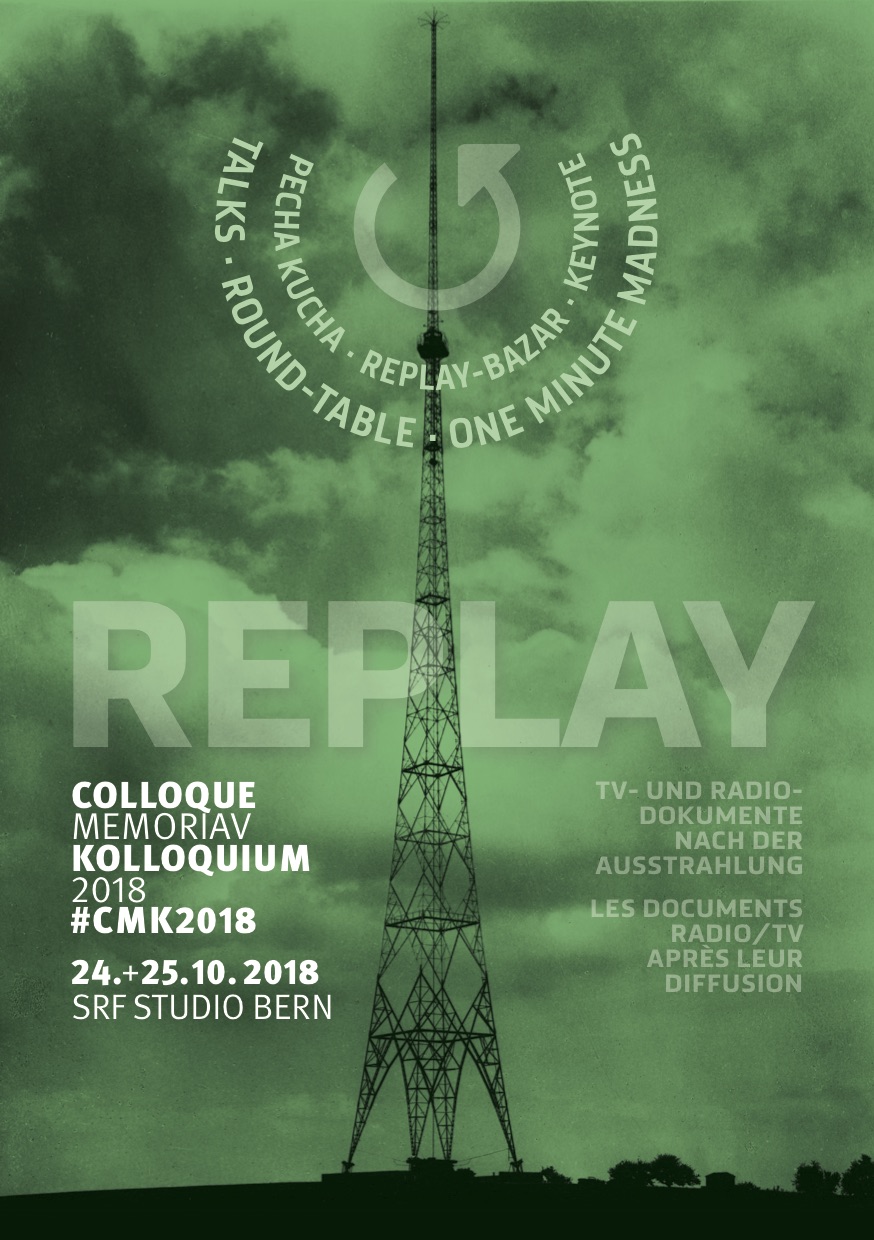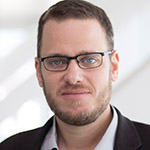Colloque Memoriav 2018
Replay : les documents Radio/TV après leur diffusion #CMK2018
24.10 - 25.10.2018
Les stations de radio et les chaines de télévision, publiques et privées, font partie des plus grands producteurs de documents audiovisuels. Ces derniers suscitent un grand intérêt, mais comment ces sons et ces images peuvent-ils perdurer et être transmis aux générations futures ? Le Colloque Memoriav 2018 porte un regard sur le travail de sauvegarde et de mise en valeur des documents radio/TV dans le cadre du service public et des stations privées. Inscrivez-vous dès maintenant!
Informations pratiques
- Titre:
Replay: les documents Radio/TV après leur diffusion - Date et lieu:
24 et 25 octobre 2018, SRF Studio Berne, Vers le plan d’accès - Programme (provisoire):
Vers le programme (PDF). Le programme provisoire est régulièrement actualisé.
Le discours d’ouverture mettra l’accent sur la pertinence sociale, les différents aspects et significations des archives radiophoniques en tant que biens culturels. L’état actuel, les expériences, les perspectives et les souhaits d’archivage et d’accès aux archives radio seront reflétés, on montrera également leurs changements au fil du temps et les perspectives actuelles, en comparaison internationale.
La transmission du patrimoine TV/Radio à l’ère numérique
Dr. Christoph Classen, Zentrum für Zeithistorische Forschung, Potsdam
En partant de l’importance contemporaine et culturelle de la radiodiffusion aux XXe et XXIe siècles, le discours d’ouverture traitera des aspects de la transmission, de l’archivage et de l’utilisation des sources audiovisuelles. Outre la description des problèmes et des potentiels du passé analogique, les changements de l’ère numérique seront abordés. Les temps de la « Scarcity », de l’absence de sources historiques, sont-ils enfin révolus au profit d’un âge d’ »Abundance » (Roy Rosenzweig), d’une abondance d’images et de sons ? Si oui, qu’est-ce que cela signifie pour les archives des médias ? Et quelle influence le droit d’auteur et la protection des données ont-ils sur la visibilité du patrimoine culturel audiovisuel à l’ère numérique ?
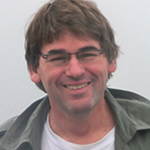
Dr. Christoph Classen a étudié l’histoire, l’allemand et la psychologie. Depuis 2009, il est chef de projet dans le département « Histoire contemporaine des médias et de la société de l’information » du Centre de recherche historique contemporaine de Potsdam (ZZF). Ses domaines de travail incluent l’histoire des médias, les questions de culture de la mémoire et l’histoire contemporaine germano-allemande.
Publications entre autres: Faschismus und Antifaschismus. Die nationalsozialistische Vergangenheit im ostdeutschen Hörfunk 1945-1953. Köln: Böhlau 2004; Zwischen Pop und Propaganda, Radio in der DDR. Berlin: Links 2004 (Hg., mit Klaus Arnold). Gleiche Gegner? Karl-Eduard von Schnitzler und Gerhard Löwenthal als politische Publizisten im Kalten Krieg, in: Martin Sabrow (Hg.), Das Jahrhundert der Parallelbiographien. Göttingen: Wallstein 2017, S. 27-67.
Trois spécialistes internationalement reconnus de Suède, des Pays-Bas et de Belgique ainsi que le directeur des archives de la Radio Télévision Suisse présenteront les conditions-cadres (politiques, économiques), les stratégies, l’organisation, les institutions et les projets d’archivage radio dans leurs pays respectifs. Cela permettra d’obtenir une vue d’ensemble transnationale et offrira des possibilités de comparaisons et d’échange d’expériences.
Who keeps the memory? Shifting responsibilities in the management of broadcasters’ archives.
Brecht Declercq, Flemish Institute for Archiving (VIAA), Ghent, and FIAT/IFTA
As in many countries, the audiovisual heritage of Flanders is spread over many actors of very different kinds: libraries, archives, museums, universities, government bodies, arts institutions, private persons, … but for the vast majority also at broadcasters: regional, commercial and public. Also the challenges will be recognizable to many: carrier degradation, playback technology obsolescence, digital preservation and a sharply increased demand for access by audiences such as education, scientific research, professional media producers and the general public. In 2012 the Flemish government therefore decided to found a new institution: VIAA, the Flemish Institute for Archiving. VIAA does not act as a centralizing body, but as a service provider for already 150 Flemish organisations who manage a significant audiovisual archive. VIAA’s offers its partners free digitisation of their audiovisual material and sustainable digital storage at a very small fee per terabyte. In exchange, VIAA can offer the material on its own, dedicated platforms, e.g. for teachers to use audiovisual materials in the classroom. This presentation will provide more detail about the VIAA-model, but it will also compare this model with other situations and approaches in several European countries. This way we hope to offer a few high level templates of what a national audiovisual heritage landscape can look like and which place broadcasters archives can take in those.
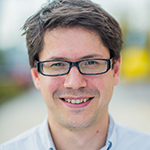
Brecht Declercq, MA, MSc (*1981) is the Digitization and Acquisition Manager at VIAA, the national audiovisual archive of Flanders, Belgium, since 2013. As such he is responsible for the overall digitization strategy of the Flemish audiovisual heritage. Previously he worked for the Belgian public broadcaster VRT for almost 10 years as a radio archivist and a project lead in several digitization, media asset management and access projects. He’s an active voice in the international audiovisual archives world, Secretary-General of the International Federation of Television Archives FIAT/IFTA and outgoing Chair of its Preservation and Migration Commission. He writes, presents, reviews and advises to several European broadcasters and audiovisual archives.
Foto: Marcin Oliva Soto
Digital transformation and the archive: a new perspective on providing online access to audiovisual collections
Johan Oomen, Netherlands Institute for Sound and Vision, Hilversum
Digital transformation in the audiovisual heritage sector is well on its way. Analogue collections are being digitised, systems, workflows and collection policies are updated to manage the ingest of born-digital collections. Outreach strategies are being designed that to have maximum impact, reaping all the benefits that online distribution offers. At the same time, the age of fake news, privacy violations and centralisation of power, public institutions like audiovisual archives have more and more responsibilities. To offer unbiased access to information to everyone. To act as authoritative custodians of their collections. To operate free from a driving motivation to make a profit. And to stimulate the creative industries, academia, the educational to excel in their efforts to reach their audiences. Many of these aims are in the core of audiovisual archives since their inception decades ago. However, the constantly changing context make it necessary to identify the best way to fulfill them. Archives and user are now inhibiting the same information space. This has fundamental ramifications for strategic decisions on providing online access to collections. This paper examines how archives are starting to use various, complimentary channels to reach out to various user groups. It highlights which new partnerships start to emerge, the role of managing copyrights and how technological advances make it possible to connect collections to users and to other online sources of information.
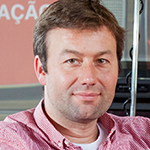
Johan Oomen is head of the Netherlands Institute for Sound and Vision Research and Development department (20 FTE) and researcher at the Web and Media group of the VU University Amsterdam. Oomen and his group are working on research projects that focus on digital heritage in all its facets. Oomen holds an BA in Information Science and an MA in Media Studies. His PhD research focusses on the relation between participatory culture and institutional policy. He has worked for the British Universities Film and Video Council and commercial broadcaster RTL Nederlands and has talked at high profile events in six continents. He is board member of the Europeana Association, the EUscreen Foundation and the PublicSpaces Foundation. He is advisor to the Amsterdam Fund for the Arts and the Dutch National research council for cultural heritage.
Foto: Alexandre Mota/Universo Producao
Broadcast Archives in Sweden
Eva-Lis Green, Kungliga biblioteket National Library of Sweden, Stockholm, and FIAT/IFTA
An overview of the audio-visual archives in Sweden will be presented with major focus on Public Service Broadcast and the legal deposit of all Swedish Broadcast at the National Library of Sweden.
The content and status for the Swedish Public Service broadcaster SVT (Swedish Television) archive will be described as well as the content and status at the National Library and the legislation for legal deposit. Also in what way the Broadcaster and the Library cooperate will be covered in this presentation.

Eva-Lis Green, National Library of Sweden Head of Digital Collection department, since February 2017. Has a background at SVT, Sweden’s public Service Broadcaster as SVT Media Quality Controller at the Archives and Rights department, Head of Archives and Transmission, Head of Documentation, Information System Coordinator at the Engineering Department and also project manager for different IT-and Media Management systems. Eva-Lis is a specialist in archiving workflows and information systems in the field of media asset management. She is a member of the Executive Council of FIAT/IFTA and of the Media Management Commission. She has been active in different European and national organizations, projects and commissions in the archive and metadata field. Eva-Lis has studied Swedish language, literature and music at Lund University and has also an examination in Librarianship.
Open Archive, Open Data and Open Collaboration
Léonard Bouchet, Head of Data and Archives at RTS Radio Télévision Suisse (French speaking part of the SBC)
Overview of SRG’s national strategy for opening up its archives and how an open approach can benefit the preservation of audiovisual heritage.
Léonard Bouchet, aged 40, currently leads the national group of experts about Data and Archives in the Swiss Broadcasting Corporation (SBC). Since 2016, he is the Head of Data and Archives at RTS Radio Télévision Suisse (French speaking part of the SBC). He has previously lead the Digital Production for RTS and works with passion for public media since 2009.
Cette partie du programme se compose de trois éléments : une séance de « folie d’une minute » pour commencer, le « bazar » proprement dit avec des présentations de stand et en conclusion un « reportage ». L’événement donne un aperçu général et approfondi des projets, des développements, des outils et d’autres expériences pertinentes dans le domaine de l’archivage radio. Pour cette partie du programme, des formes fraîches et très interactives ont été choisies pour que les opérateurs des stands du bazar et leurs « clients » puissent se mélanger de manière intéressée, informelle et fructueuse.
Cette partie du programme comprend également trois éléments : Une introduction fournit le cadre de la discussion, limite ou délimite le sujet, et reflète l’état actuel de l’utilisation académique des archives de radio. Dans la session « Pecha Kucha » suivante, les invités présentent leurs contextes, leurs projets, etc. d’une manière courte, informative et divertissante ; enfin lors de la discussion en panel avec les invités et le public sur des sujets centraux et des thèses autour de l’utilisation académique des archives radio sous différents angles. Le but de la présentation et de la discussion est d’échanger des connaissances, des besoins, des opportunités et des défis dans l’utilisation académique des archives radio.
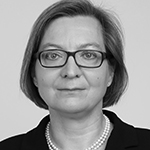
Martina Schretzenmayr, ETH, Zürich
Martina Schretzenmayr hat Raumplanung und Geographie studiert. Die ist Dozentin an der ETH Zürich und verantwortlich für die Planungssammlung im Archiv gta (ETH Zürich). Seit 2006 leitet sie das Projekt « Geschichte der Raumplanung Schweiz », das neben Interviews mit Zeitzeugen auch auf Filmbeiträge aus Fernsehen und Radio als Quellen zurückgreift. In regelmässigen Ausstellungen setzt sie historisches Filmmaterial zu Vermittlungszwecken ein.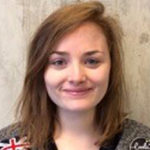
Roxane Gray, Université de Lausanne, Lausanne
Roxane Gray a débuté ses recherches en histoire de la télévision dans le cadre d’un Master en histoire sociale et culturelle à l’Université de Versailles-Saint-Quentin-en-Yvelines. Doctorante à l’Université de Lausanne depuis décembre 2016, elle participe au projet « Au-delà du service public : pour une histoire élargie de la télévision en Suisse, 1960-2000 » financé par le Fonds National Suisse et dirigé par Prof. François Vallotton et Dr. Anne-Katrin Weber. Roxane Gray mène actuellement sa thèse de doctorat sur l’histoire des réalisateurs de télévision en Suisse romande.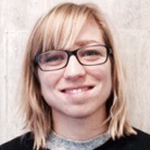
Marie Sandoz, Université de Lausanne, Lausanne
Marie Sandoz est issue d’un cursus en histoire économique internationale à l’Institut Paul Bairoch de l’Université de Genève, achevé en janvier 2016. Elle mène actuellement une thèse à l’Université de Lausanne au sein du projet « Au-delà du service public : pour une histoire élargie de la télévision en Suisse, 1960-2000 ». Cette recherche est co-dirigée par Prof. François Vallotton et Dr. Anne-Katrin Weber et financée par le Fonds National Suisse. Sa thèse porte plus précisément sur la généalogie de la télévision satellite en Suisse.
Dr. Christoph Classen, Zentrum für Zeithistorische Forschung, Potsdam
Dr. Christoph Classen hat Geschichte, Germanistik und Psychologie studiert. Seit 2009 ist er Projektleiter in der Abteilung „Zeitgeschichte der Medien und Informationsgesellschaft“ am Zentrum für Zeithistorische Forschung Potsdam (ZZF). Zu seinen Arbeitsgebieten gehören u.a. Mediengeschichte, Fragen der Erinnerungskultur sowie die deutsch-deutsche Zeitgeschichte.
Publikationen u.a.: Faschismus und Antifaschismus. Die nationalsozialistische Vergangenheit im ostdeutschen Hörfunk 1945-1953. Köln: Böhlau 2004; Zwischen Pop und Propaganda, Radio in der DDR. Berlin: Links 2004 (Hg., mit Klaus Arnold). Gleiche Gegner? Karl-Eduard von Schnitzler und Gerhard Löwenthal als politische Publizisten im Kalten Krieg, in: Martin Sabrow (Hg.), Das Jahrhundert der Parallelbiographien. Göttingen: Wallstein 2017, S. 27-67.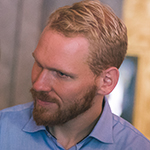
Felix Wirth, Universität Freiburg, Freiburg
Felix Wirth studierte Geschichte und Geographie an der Universität Fribourg und schloss 2014 mit dem «Master of Arts in Allgemeiner und Schweizerischer Zeitgeschichte» ab. Während seines Studiums war er unter anderem als Dokumentalist beim Schweizer Radio und Fernsehen (SRF) tätig. Zwischen 2011 und 2013 arbeitete er bei zwei Memoriav-Projekten im Bereich Ton und Video mit («Audiovisuelles Kulturgut des Kantons Freiburg» (Teilprojekt) und «Erhaltung des Bestands Rüsler Television»). Für seine Masterarbeit, die den Titel «Afrika im Radio» trägt, untersuchte Wirth die afrikabezogene Berichterstattung des deutschschweizer Rundfunks zwischen 1945 und 1970. Seit dem Frühjahr 2015 forscht Wirth an der Universität Fribourg (Bereich Zeitgeschichte) im Rahmen einer Dissertation zu Science-Fiction-Hörspielen von Schweizer Radio Beromünster zwischen 1935 und 1985. Zusätzlich zu den Lehr- und Forschungstätigkeiten an der Universität Fribourg nimmt Wirth seit 2015 eine Anstellung als Assistent für den Studiengang «Historical Sciences» der Universitären Fernstudien Schweiz wahr.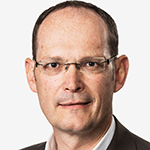
Dr. Christian Vogg, Schweizer Radio und Fernsehen (SRF), Zürich
Dr. Christian Vogg begann seine berufliche Karriere als Printjournalist, arbeitete dann nach dem Studium der Politik- und Islamwissenschaft 20 Jahre lang für Radio, TV und Online beim Westdeutschen Rundfunk in Köln. Als Referent des WDR-Intendanten war er an der digitalen Strategie beteiligt. Später entwickelten er und sein Team die WDR Mediathek (AV-Online-Portal). Nachdem er beim WDR für das Metadaten-Management verantwortlich war, wechselte er als Radio- und Musikchef zur Europäischen Rundfunkunion (EBU) nach Genf. Er leitete dort die weltweit größte Musikbörse und war in Radio- und Cross-Media-Strategien sowie DAB+ aktiv. In seiner jetzigen Position bei SRF als Leiter Dokumentation und Archive ist er als SRF-Datenmanager auch für die Optimierung der Metadaten in Radio, Fernsehen und Online verantwortlich. Sein Team wurde zudem mit der Aufgabe betraut, die Einführung von Tools aus dem Bereich der künstlichen Intelligenz zu koordinieren.SRF/Oscar Alessio
- Journée mondiale du patrimoine audiovisuel
Une Soirée Memoriav, placée sous le patronage de la Commission suisse pour l’UNESCO, est organisée le premier soir du Colloque (24.10. de 19h à 22h), elle célèbrera officiellement la Journée mondiale du patrimoine audiovisuel. - Traductions:
Traductions simultanées allemand/français et français/allemand lors du Colloque - Prix:
– Membre Memoriav et partenaires de la formation: CHF 230.-
– Non-membre: CHF 350.-
– En formation: CHF 100.- -
- Partenaires:
Le Colloque Memoriav se tient dans le cadre de la Journée mondiale pour la sauvegarde de la mémoire audiovisuelle et est placé sous le patronage de la Commission suisse pour l’UNESCO. - SRG SSR est le partenaire principal du Colloque Memoriav 2018.
- Participent également:
– BIS – Bibliothèque Information Suisse
– Association des archivistes suisses AAS
– Association des musées suisses (AMS – ICOM Schweiz)
– CECO centre de coordination pour l’archivage à long terme de documents électroniques
– Cinéducation
- Partenaires:
